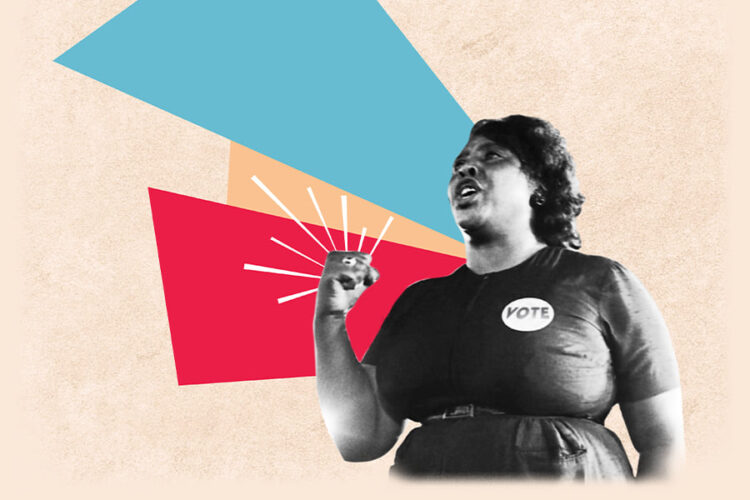Fannie Lou Hamer Risked Her Life
for the Right to Vote
Fannie Lou Hamer, a voting rights activist, suffered unspeakable violence and intimidation at the hands of white supremacists and police. Her response: to elevate her cause by launching a long-shot campaign for the U.S. Senate.
“Hamer not only helped to register voters but empowered others by entering the realm of electoral politics herself. In 1964, one year after she succeeded in registering herself to vote for the first time, Hamer ran for a seat in the U.S. House of Representatives to challenge white Mississippi Democrat Jamie Whitten, who was seeking a 13th term. Although her chances of winning were slim, she explained to a reporter, “I’m showing people that a Negro can run for office.” Despite a limited budget, Hamer ran a spirited campaign backed by a coalition of civil rights organizations, promising to tackle the issues of poverty and hunger. The Democratic Party refused to allow Hamer’s name on the official ballot, but the MFDP organized mock election events and brought Black Mississippi voters out in record numbers. An estimated 60,000 African Americans participated and cast a symbolic vote for Hamer in what the MFDP termed a “Freedom Ballot.” – via Smithsonian
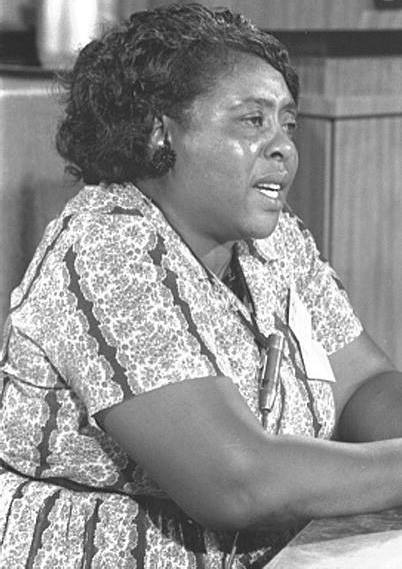
Photo by Warren K. Leffler
“She was born the 20th child in a family that had lived in the Mississippi Delta for generations, first as enslaved people and then as sharecroppers. She left school at 12 to pick cotton, as those before she had done, in a world in which White supremacy was an unassailable citadel. She was subjected without her consent to an operation that deprived her of children. And she was denied the most basic of all rights in America―the right to cast a ballot―in a state in which Blacks constituted nearly half the population.
And so Fannie Lou Hamer lifted up her voice. Starting in the early 1960s and until her death in 1977, she was an irresistible force, not merely joining the swelling wave of change brought by civil rights but keeping it in motion. Working with the Student Non-Violent Coordinating Committee (SNCC), which recruited her to help with voter registration drives, Hamer became a community organizer, women’s rights activist, and co-founder of the Mississippi Freedom Democratic Party. She summoned and used what she had against the citadel―her anger, her courage, her faith in the Bible, and her conviction that hearts could be won over and injustice overcome. She used her brutal beating at the hands of Mississippi police, an ordeal from which she never fully recovered, as the basis of a televised speech at the 1964 Democratic Convention, a speech that the mainstream party―including its standard-bearer, President Lyndon Johnson―tried to contain. But Fannie Lou Hamer would not be held back. For those whose lives she touched and transformed, for those who heard and followed her voice, she was the embodiment of protest, perseverance, and, most of all, the potential for revolutionary change.”
*~*
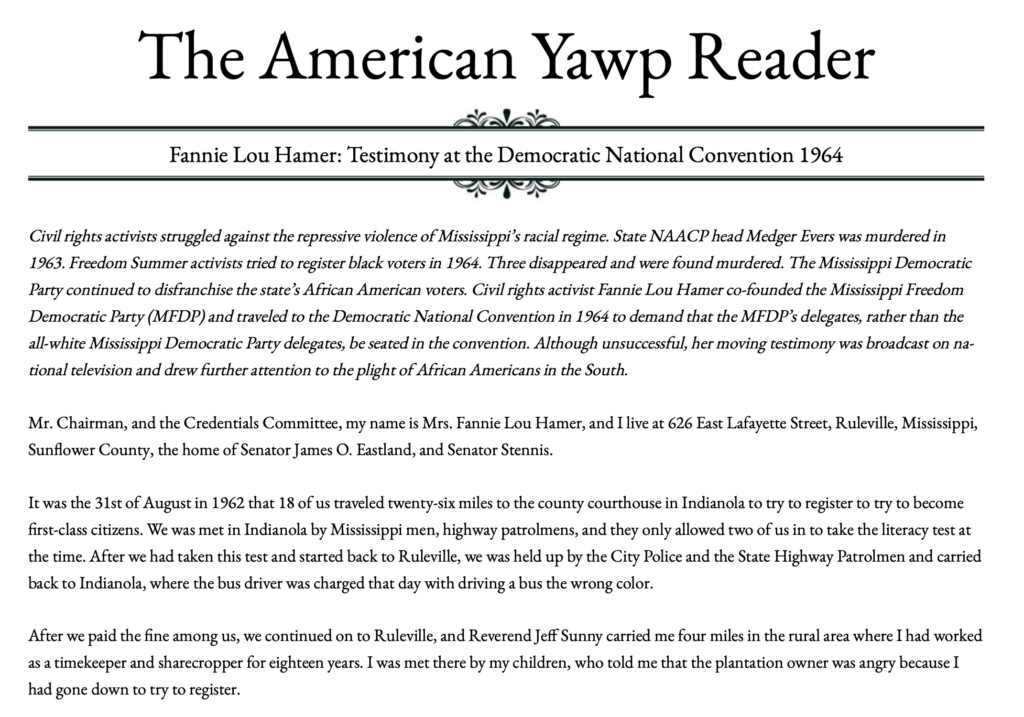
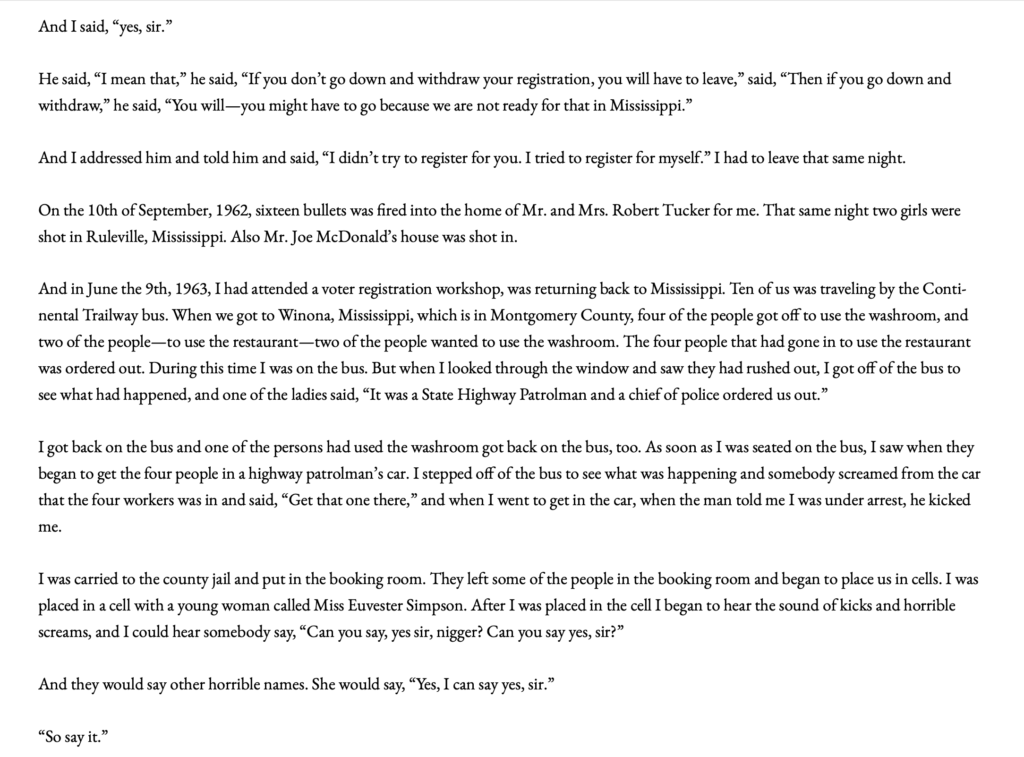
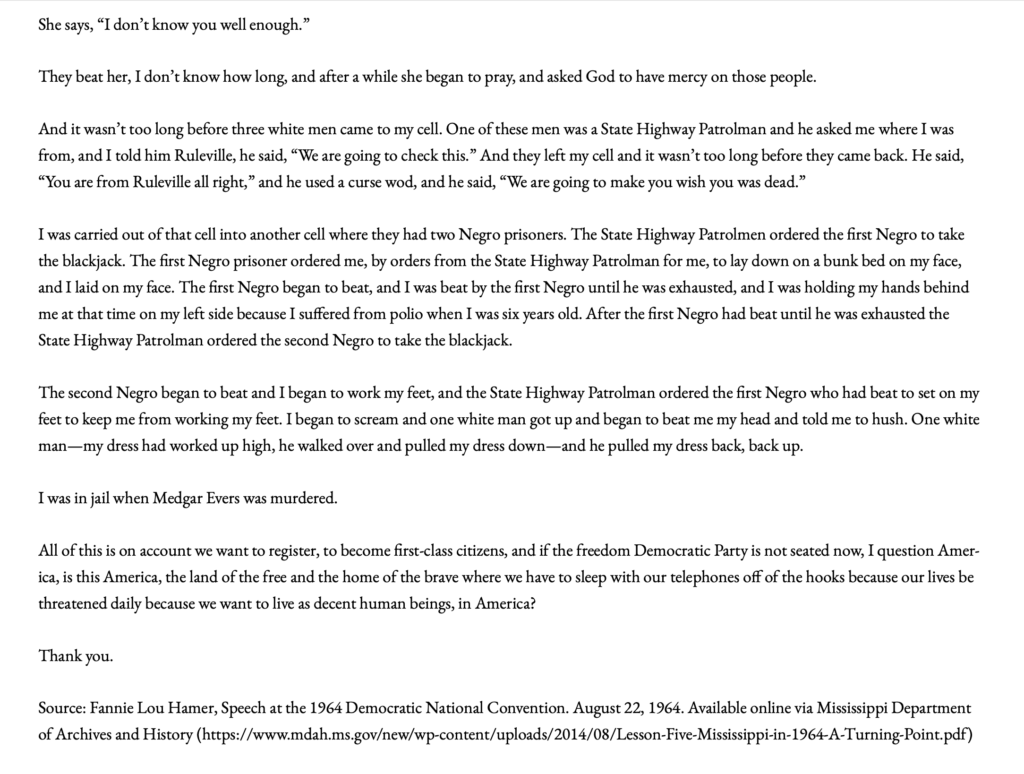
*~*
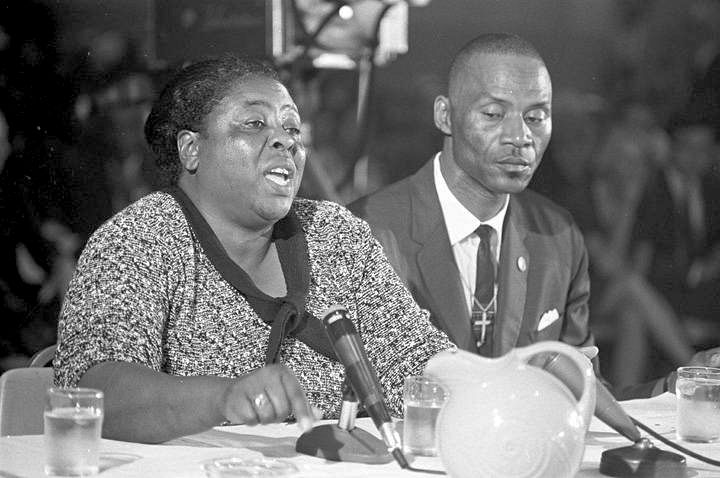
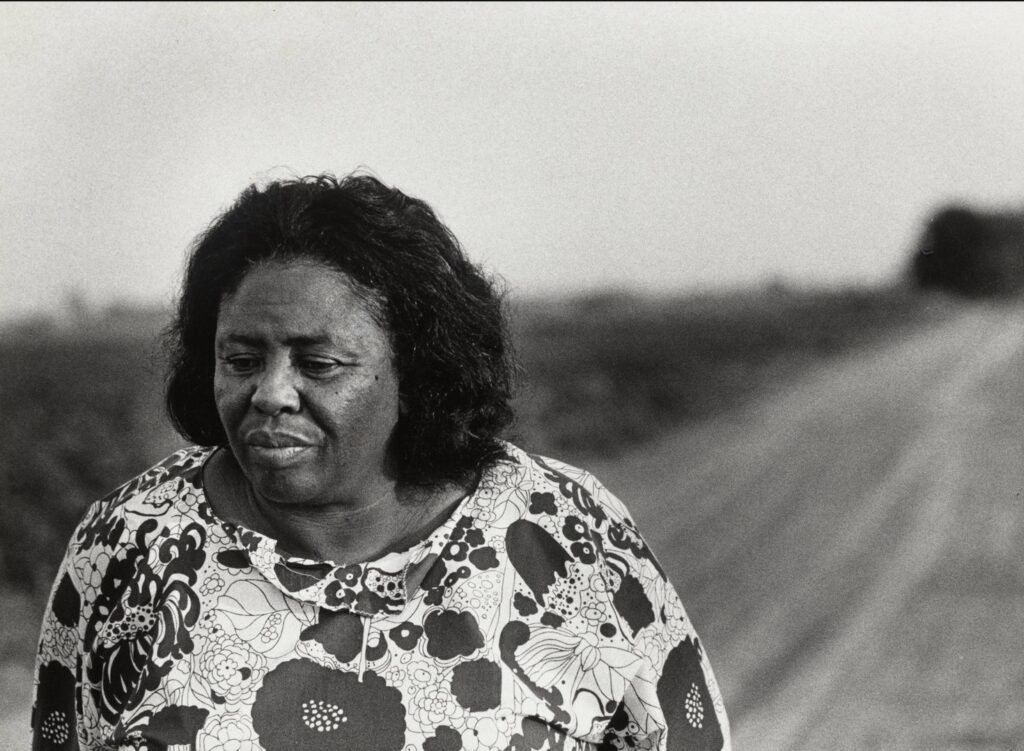
“You can pray until you faint. But if you don’t get up and try to do something, God is not going to put it in your lap. And I believe…that one day…if I have to die for this…we shall overcome.“
“I don’t want to hear you say, ‘Honey, I’m behind you.’ Well, move. I don’t want you back there because you could be 200 miles behind. I want you to say, ‘I’m with you.’ And we’ll go up this freedom road together.”
Fannie Lou Hamer’s America | Beyond the Lens
“Mississippi sharecropper-turned-human rights activist, Fannie Lou Hamer, is known for her powerful speeches, soul-stirring songs, and impassioned pleas for equal rights. And though she is often overlooked for her accomplishments, she helped change laws and was very influential in the Voting Rights Act of 1965. Besides her political advocacies during the 1960s, Hamer was also a humanitarian, providing clothing, housing, educational opportunities for the poor, and food for thousands through her Freedom Farm Cooperative and pig bank.”

